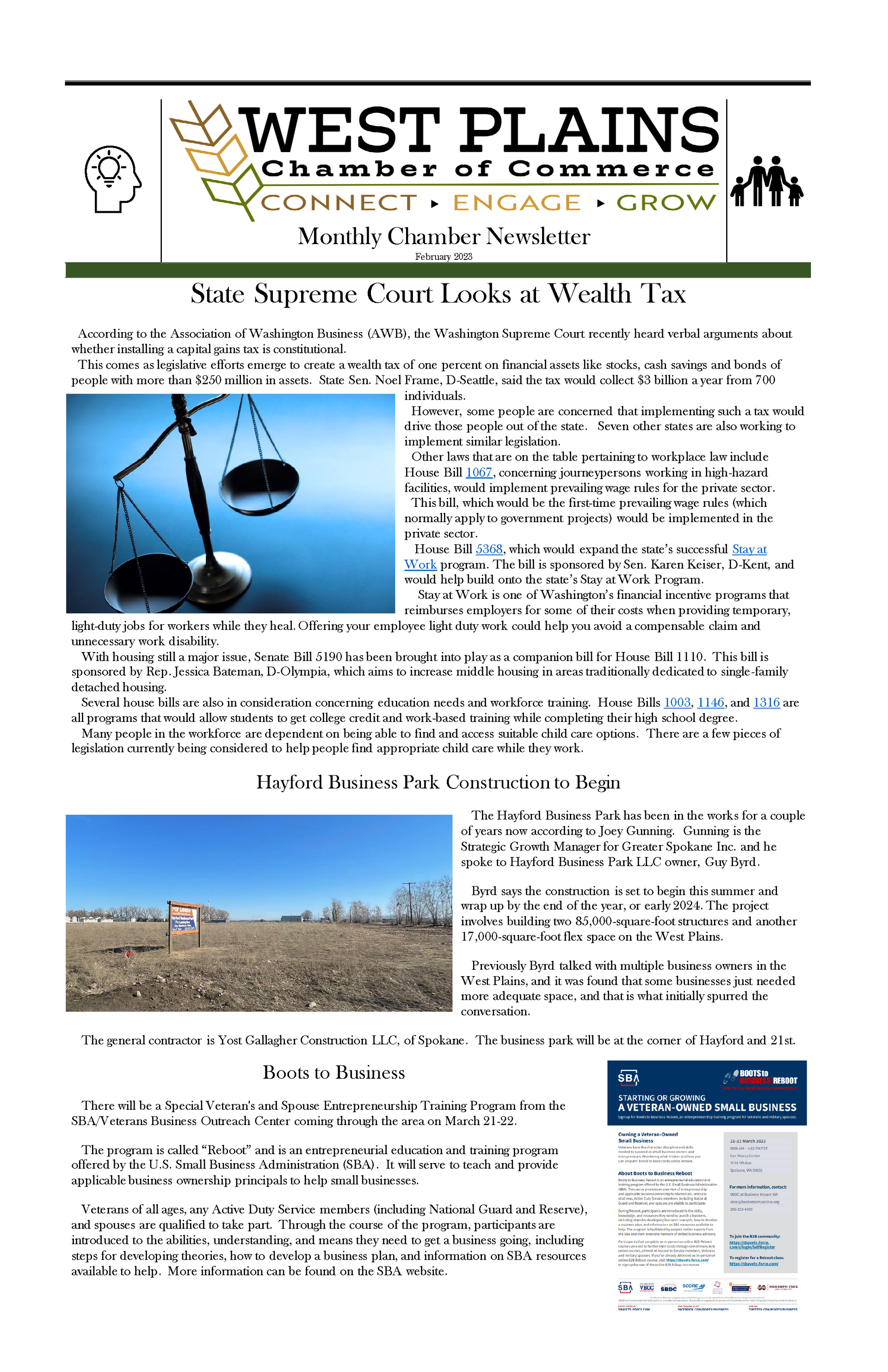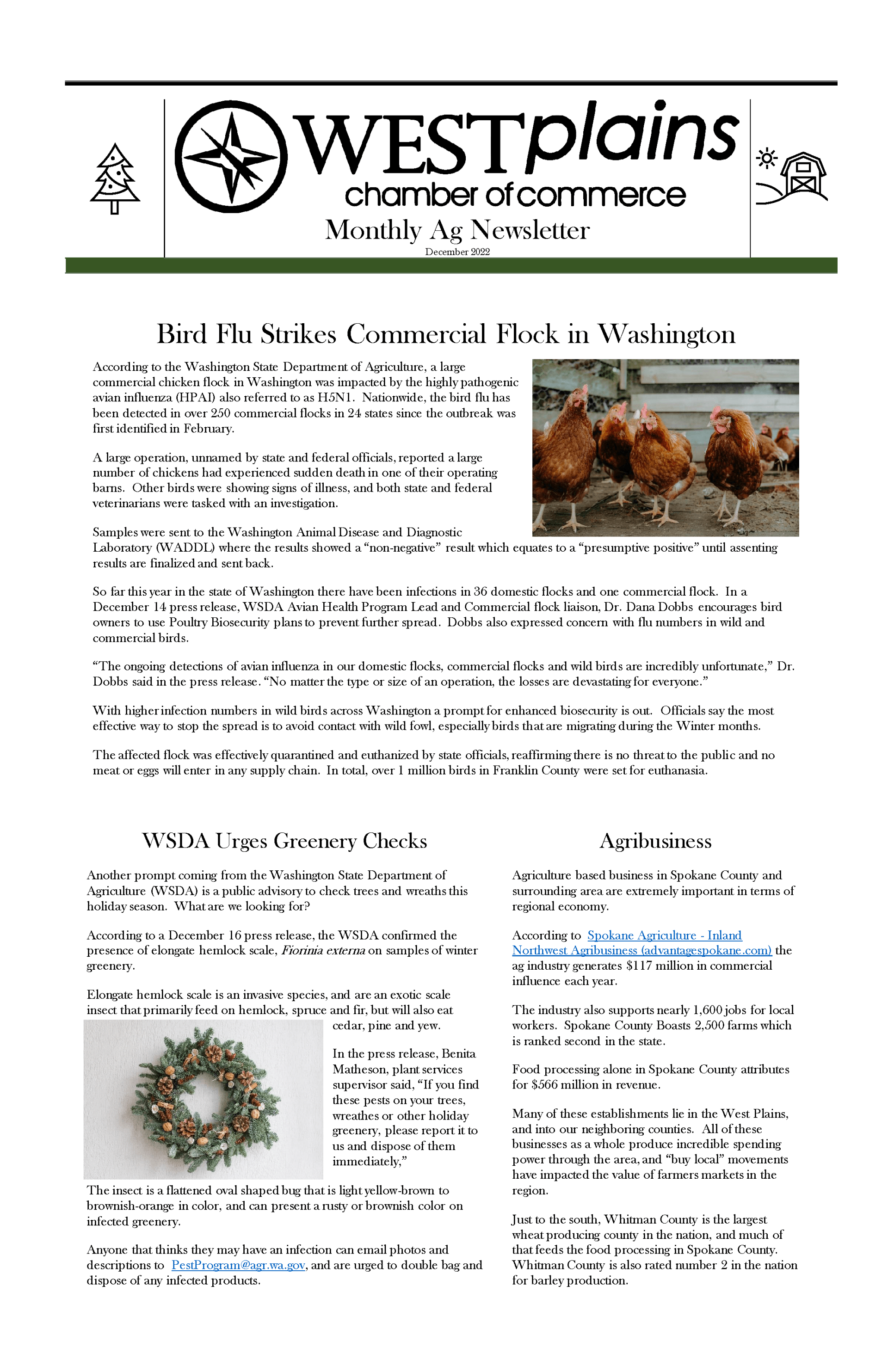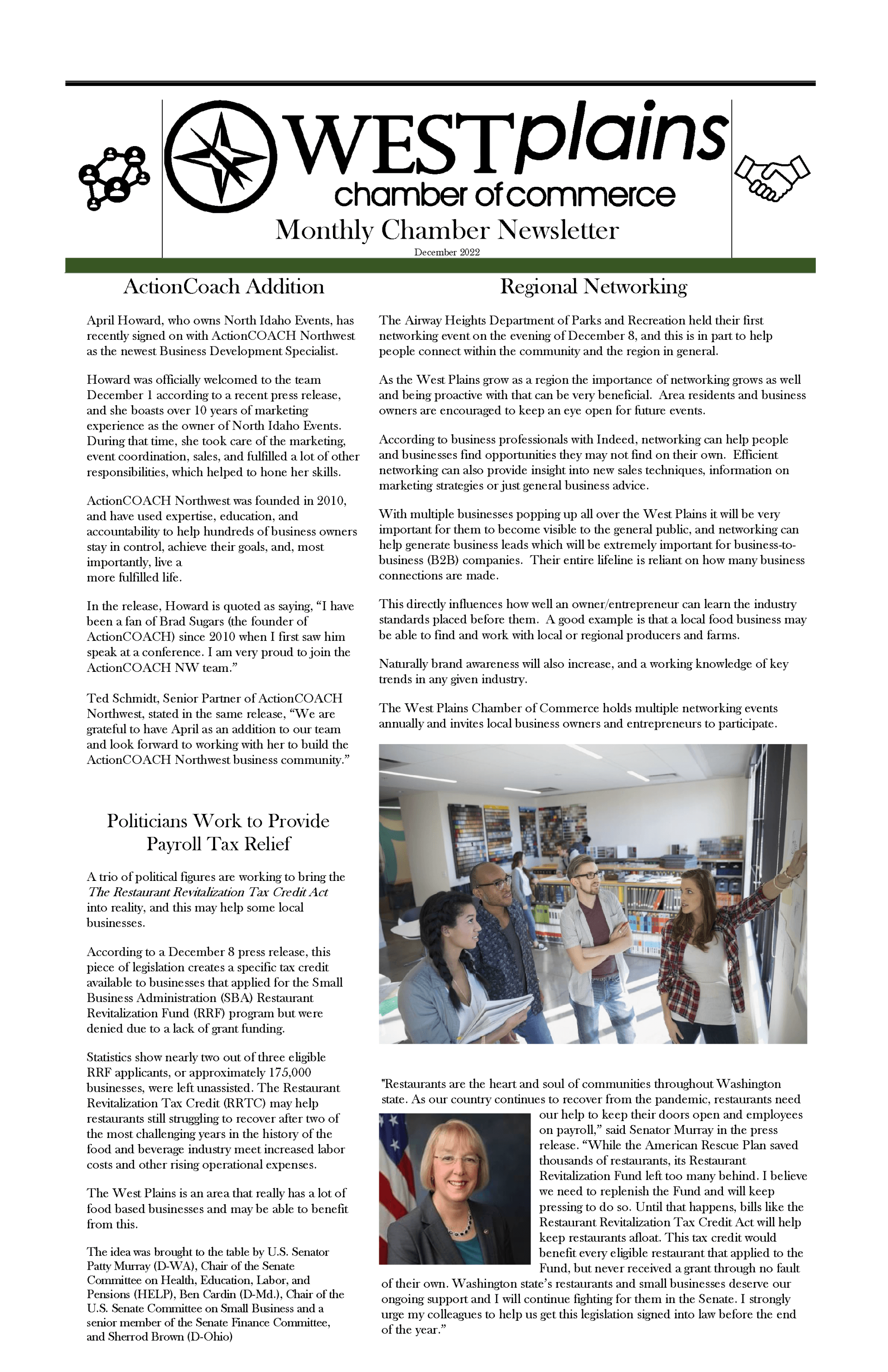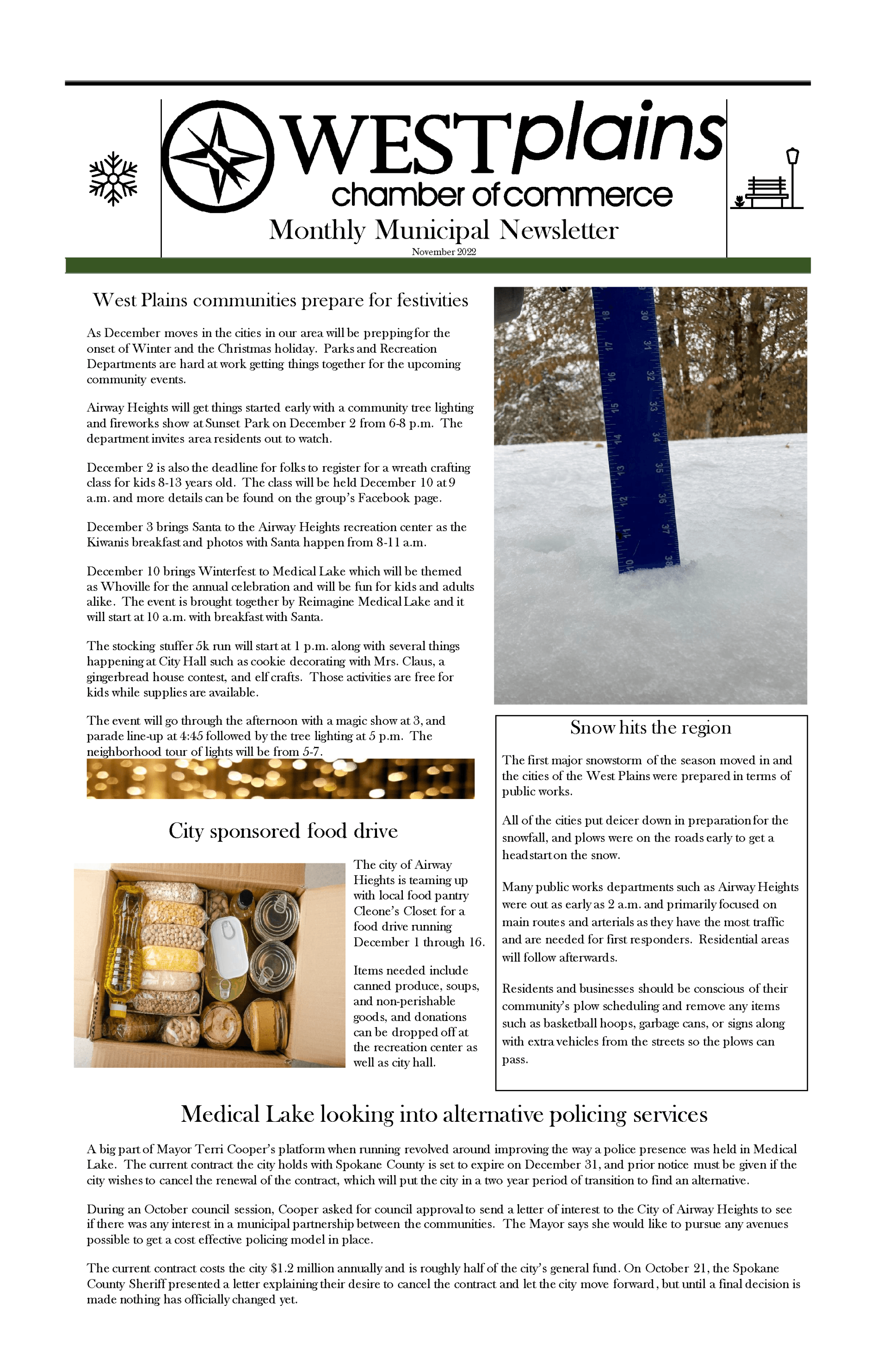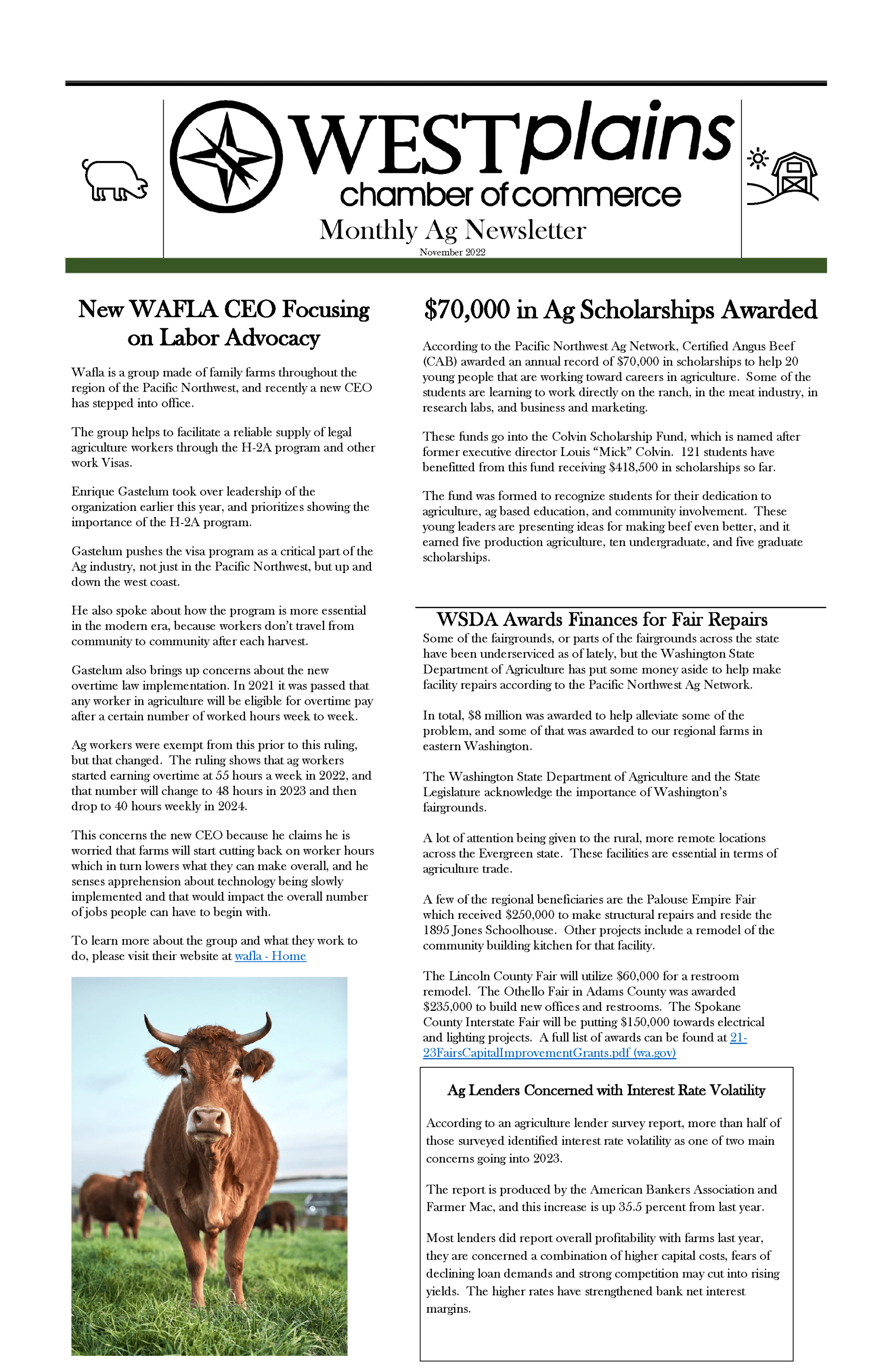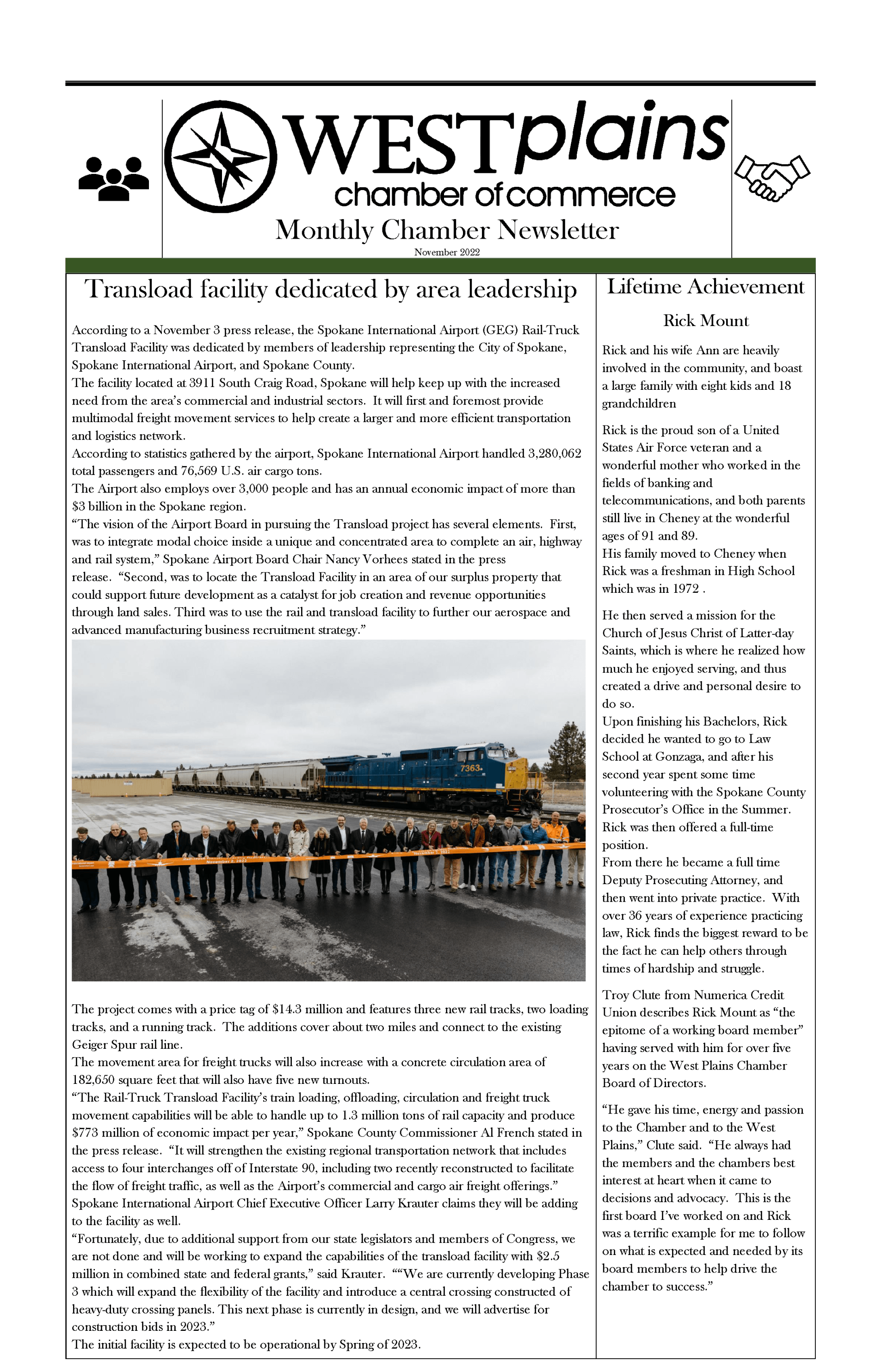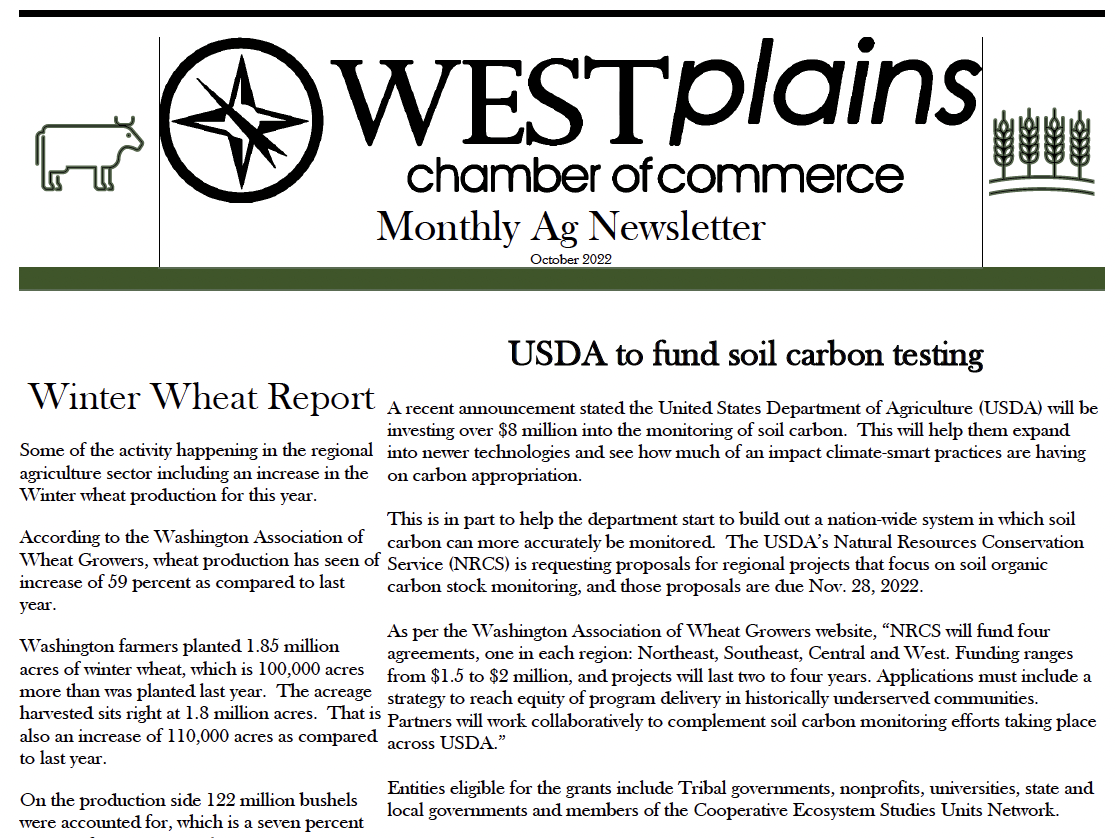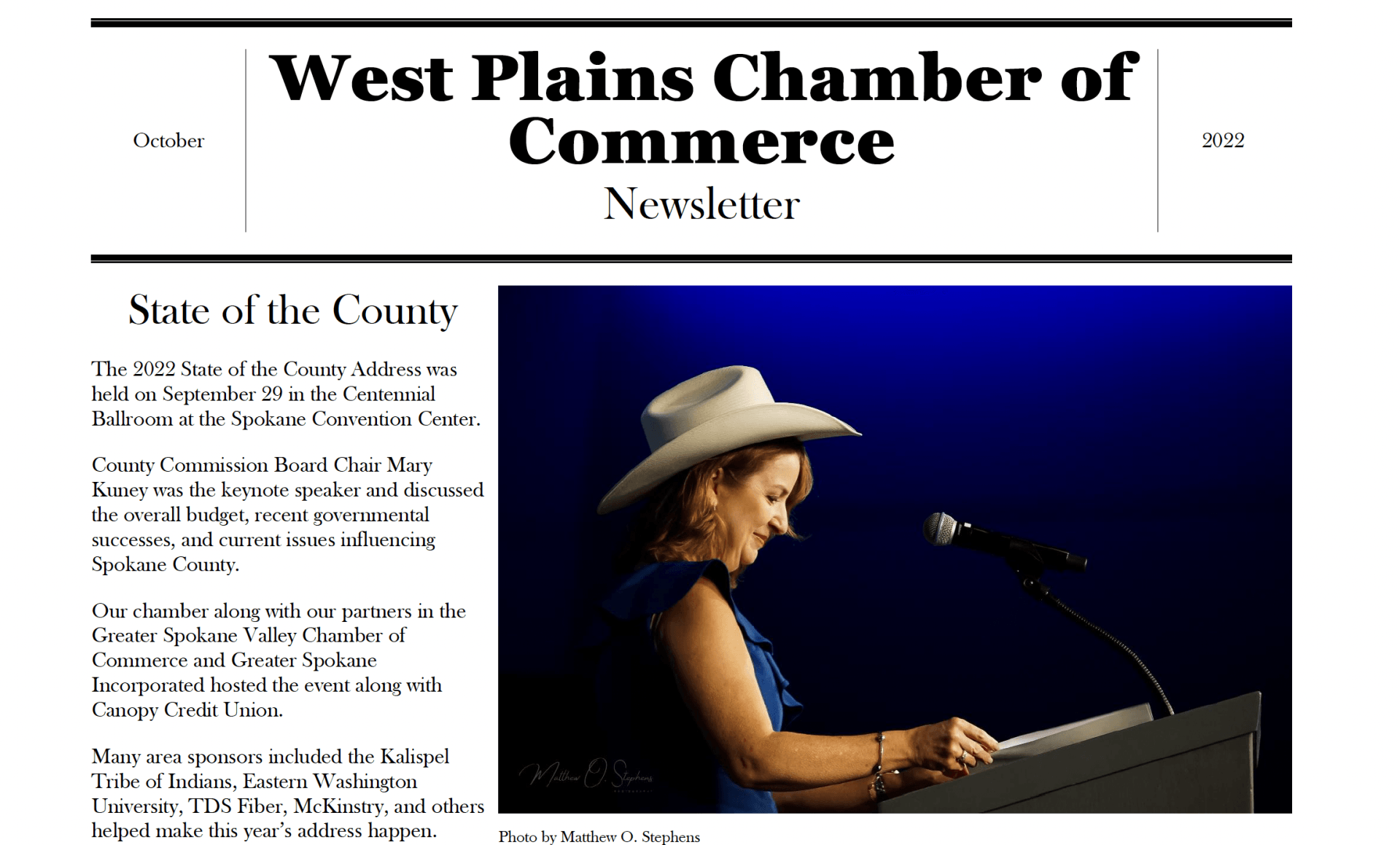Ag groups express concern over SEC’s proposed rule on climate-related disclosures
Concern SEC's proposed rule, “The Enhancement and Standardization of Climate-Related Disclosures for Investors"
from Morning Ag Clips
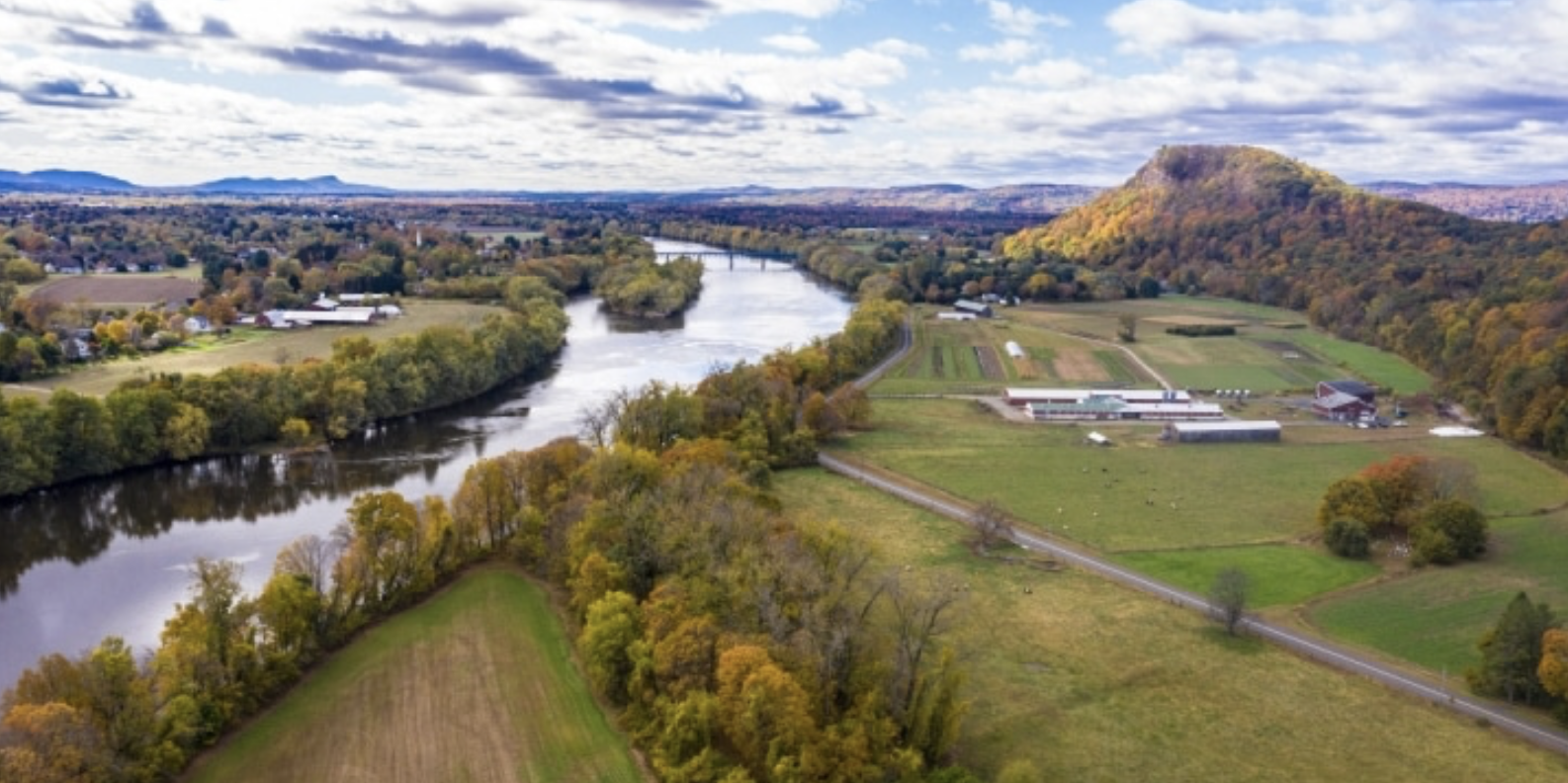
WASHINGTON — Editor’s note: The following organizations have issued statements concerning the Securities and Exchange Commission (SEC)’s proposed rule, “The Enhancement and Standardization of Climate-Related Disclosures for Investors.” The rule would would require registrants to provide certain climate-related information in their registration statements and annual reports.
American Farm Bureau Federation
Proposed SEC Rule Requirements Nearly Impossible for Family Farms
The American Farm Bureau Federation warned the Securities and Exchange Commission (SEC) today about the consequences to rural America of the SEC’s proposed rule, “The Enhancement and Standardization of Climate-Related Disclosures for Investors.” The proposal would require public companies to report on Scope 3 emissions, which are the result of activities from assets not owned or controlled by a publicly traded company but contribute to its value chain. While farmers and ranchers would not be required to report directly to the SEC, this regulation would impose additional burdens as they provide almost every raw product that goes into the food supply chain.
The comments were filed on behalf of AFBF and 10 other agriculture organizations. The organizations state, “Our organizations and our members are committed to transparency in climate-related matters to inform our stakeholders in a manner consistent with existing practices in the agriculture industry. However, without changes and clarifications, the Proposed Rules would be wildly burdensome and expensive if not altogether impossible for many small and mid-sized farmers to comply with.”
AFBF President Zippy Duvall said, “Farmers and ranchers are committed to feeding America’s families while protecting the resources they’ve been entrusted with. We’re doing this through voluntary, market-driven incentives, but this proposed rule threatens that progress.
“Family farms don’t have teams of compliance officers and attorneys to respond to Wall Street. Higher costs could keep small farms from doing business with publicly traded companies, which could lead to more consolidation and fewer farmers at a time when the world is increasingly calling on rural America to meet the needs of hungry families.”
Recommendations to the SEC include:
- Removing the “value-chain” concept from the proposed rules;
- Removing or substantially revising the Scope 3 emissions disclosure requirement to include an explicit exemption for the agricultural industry;
- Removing the requirement that registrants provide disclosures pertaining to their climate-related targets and goals;
- Revising the proposed rules so that disclosures of GHG emissions operate in unison with existing federal emissions reporting programs;
- Ensuring the final rules do not include location data disclosures for GHG emissions, which may inadvertently disclose the private information of family farms.
Read the full comments here.
National Cattlemen’s Beef Association
Cattle Industry Fights Controversial SEC Climate Rule
Today, the National Cattlemen’s Beef Association (NCBA) filed comments on the U.S. Securities and Exchange Commission’s (SEC) controversial proposed greenhouse gas disclosure rule. The rule would require publicly traded companies to disclose their direct (scope 1), energy/electricity consumption (scope 2), and supply chain emissions (scope 3), creating a burden on cattle producers who supply beef to publicly traded processors, restaurants, and retailers.
“With cattle producers facing record inflation, rising input costs and labor shortages, another bureaucratic rule from Washington is a burden we cannot afford,” said NCBA President Don Schiefelbein, a cattle producer from Kimball, Minnesota. “Policymakers should be focused on lowering costs and solving the real problems facing farmers and ranchers, not creating more complex rules that require a team of lawyers to understand.”
While the proposed rule is aimed at public companies, mandating the disclosure of scope 3 emissions would place a burden on cattle producers who supply beef to public entities. Additionally, the federal government has acknowledged that accurately calculating emissions on the farm or ranch level is impossible, while industry-wide metrics are already collected by the Environmental Protection Agency (EPA) and U.S. Department of Agriculture (USDA) at a level that should satisfy federal regulators.
“Cattle farmers and ranchers are America’s original conservationists. Thanks to decades of innovation and continuous improvement, cattle account for just 2% of overall U.S. greenhouse gas emissions,” said NCBA Environmental Counsel Mary-Thomas Hart. “Cattle producers have a proven track record of sustainable practices and should not be penalized with overreaching rules from an agency with no expertise in agriculture.”
In addition to submitting technical comments, individual cattle producers submitted over 6,700 letters to the commissioners of the SEC and members of Congress to inform them of the widespread unintended sequences this rule would have on the cattle and beef industry.
NCBA’s technical comments were filed with a coalition of agricultural organizations including the American Farm Bureau Federation, National Pork Producers Council, National Cotton Council, National Corn Growers Association, National Potato Council, American Soybean Association, Agricultural Retailers Association, National Association of Wheat Growers, U.S. Poultry & Egg Association. Numerous NCBA state and breed affiliates submitted comments as well.
BACKGROUND
The SEC is a Wall Street regulator, not an environmental or agricultural agency. This proposed rule goes far outside the SEC’s primary jurisdiction and places an unreasonable burden on private small businesses, farms, and ranches. NCBA has urged the SEC to limit the proposed rule to publicly traded companies—the agency’s actual jurisdiction.
For agriculture specifically, this rule would force private entities to release confidential information. Court decisions like American Farm Bureau Federation v. EPA have solidified the right to producer data privacy. Industry-wide emissions data is already collected through the annual EPA Greenhouse Gas Inventory and USDA Life Cycle Assessments, which should satisfy any requirement for supply chain emissions data.
National Milk Producers Federation
Given Dairy’s Progress, NMPF Voices Concern with Proposed SEC Climate Rule
The U.S. Securities and Exchange Commission’s (SEC) proposed rule mandating extensive climate disclosures from publicly traded companies could undermine the dairy industry’s progress toward its sustainability goals and create far-reaching technical and financial challenges for American dairy farmers and their cooperatives, the National Milk Producers Federation (NMPF) said in comments submitted today.
“Dairy farmers are on the frontlines confronting the many challenges associated with climate change and remain committed to making progress to reduce the industry’s environmental impact,” said Jim Mulhern, president and CEO of NMPF. “The SEC rule, as written, could hamper our ability to make progress through the industry’s robust, voluntary greenhouse gas (GHG) assessment program, and jeopardize our goal of reaching GHG neutrality by 2050.”
U.S. dairy farmers have been leading environmental stewards for decades, tending their animals, land and water with great care. Thanks to improvements in productivity, new technologies and evolving best management practices, the environmental impact of producing a gallon of milk requires less water, less land and has a smaller carbon footprint than ever before. Still, the industry remains committed to its continued progress, devoting resources to programs, research and services that advance its 2050 goals to achieve industrywide neutral or better greenhouse gas emissions, optimize water usage and improve water quality.
To track progress and reach these important environmental goals, the National Dairy Farmers Assuring Responsible Management (FARM) Program in 2017 launched the Environmental Stewardship (ES) platform. The program provides a comprehensive estimate of GHG emissions and energy use on dairy farms with a suite of tools and resources for farmers to measure and improve their environmental footprint. FARM ES is the dairy community’s platform for a consistent, unified approach to GHG measurement that is free and accessible to all dairy farmers. Currently, over 80 percent of U.S. milk is handled by cooperatives and processors participating in FARM ES.
SEC’s proposed rule, “The Enhancement and Standardization of Climate Related Disclosures for Investors”, would require public companies to disclose GHG emissions, including emissions from upstream and downstream activities in its value chain, known as Scope 3. NMPF cautioned SEC that the inclusion of Scope 3 emissions disclosure within the rule is premature, and risks undermining the extensive efforts the dairy industry has made toward developing trust and buy-in for its voluntary GHG assessment program.
NMPF also emphasized the significant financial burden the proposed rule would have on dairy farmers and their cooperatives related to the collection and aggregation of on-farm GHG data.
National Pork Producers Council
Pork Industry Asks The SEC To Reconsider Climate Disclosure Rules For Farmers
The National Pork Producers Council (NPPC) filed comments today to the U.S. Securities and Exchange Commission (SEC) regarding its controversial reporting requirements proposal on climate-related disclosures for investors.
In its comments, NPPC and other agricultural groups requested that the SEC reconsider its application of burdensome and unnecessary climate disclosure requirements under Scope 3 of the proposed rules. As currently drafted, these requirements would overly burden American farmers, forcing them to take on costly and expensive reporting that will set back farm environmental performance, and would be in violation of federal law. These requirements will ultimately be neither accurate nor serve any useful purpose.
“The U.S. pork industry represents a mere one-third of 1% of U.S. climate emissions. Despite this, American pig farmers have managed to shrink their GHG footprint by over 21% over the last three decades while at the same time, the industry has increased its production of affordable pork for consumers 77%,” said Michael Formica, assistant vice president and general counsel, NPPC. “This demonstrates not only the commitment of farmers to address long-term sustainability challenges we all face, but also that voluntary, market-based incentives have helped make real progress on climate change.”
NPPC submitted comments in conjunction with ten other agricultural organizations, including the American Farm Bureau Federation and various crop and livestock organizations. Among the seven recommendations made, NPPC asked the SEC to consider removing the “value chain” concept, removing or substantially revising the Scope 3 emissions disclosure requirement and revising the proposed rule to ensure alignment of GHG emissions disclosures with existing federal emissions reporting programs and federal law protecting livestock farmers from costly, inaccurate and unduly burdensome GHG emissions reporting. Read the full comments here.
“American pig farmers are committed to transparency in climate-related matters and believe in doing this in a manner consistent with existing practices,” Formica said. “Costs associated with the proposed rule would be significant, especially for small to mid-sized farms and would lead to industry consolidation and further impact not just rural communities where those farms are located but the ability of every American to enjoy bacon with breakfast.”

